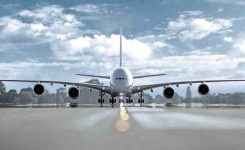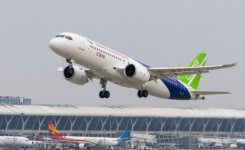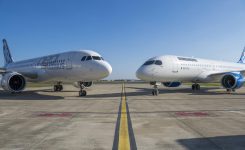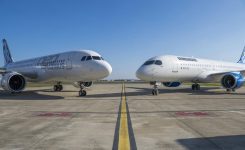Aircraft
Challenges For Expanding MRO Market In Africa
A burgeoning MRO sector is in the forecasts, but a number of hurdles to its realization remain.
Commercial aviation in Africa has long been hampered by geopolitical strife, a spotty safety record and extremely high airport fees and taxes on jet fuel. But thanks to aggressive marketing campaigns, the advent of technologically advanced aircraft and an increased commitment to safety, airline service in Africa is growing rapidly. The Air Transport Action Group report “Aviation: Benefits Beyond Borders” (July 2016), found that in terms of international airline traffic, Africa is the second-fastest-growing region in the world. But the continent’s overly strict regulatory environment needs to be simplified for the industry and local MRO providers to really take off.
As the report confirms, Africa’s airlines are subject to some of the most restrictive regulations in the world, with a plethora of individual bilateral agreements between countries. To overcome this, 52 African states came together to adopt the Yamoussoukro Declaration in 1988, aimed at liberalizing the continent’s skies. This was followed by the Yamoussoukro Decision in 1999, which worked toward the same goal. However, since then progress has stalled, with many states failing to agree on the decision’s implementation.
CAN MRO PROVIDERS REALIZE POTENTIAL GROWTH IN AFRICA?
Another issue affecting airlines in the region is the move by some African governments to block the flow of foreign exchange because of slumping oil prices. For international carriers, this means an inability to repatriate revenues. This action also restricts the ability of carriers registered in those African countries to purchase aircraft spare parts and services, which are mostly priced in U.S. dollars. At the African Airlines Association (AFRAA) general assembly in Zimbabwe in November 2016, Elijah Chingosho, secretary general of the body, urgently called for these restrictions to be lifted. Since then, AFRAA estimates that Angola, Nigeria, Egypt and Sudan have blocked some $2 billion in revenues.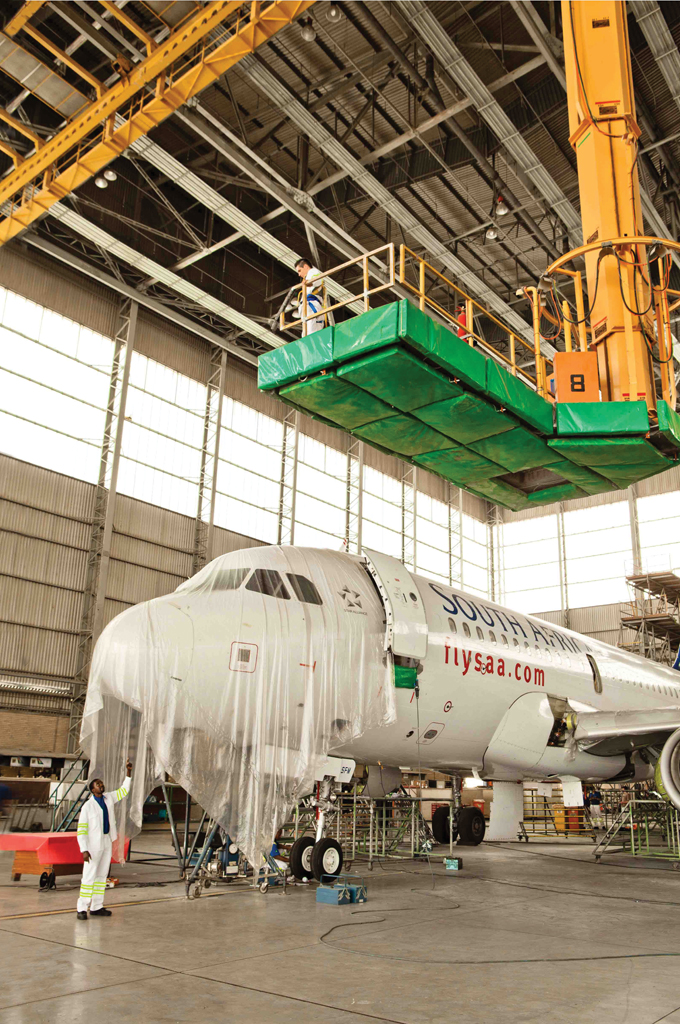
Fleet Forecasts
Africa accounts for about 5% of the global commercial airline fleet. Musa Zwane, acting CEO of South African Airways (SAA) and CEO of SAA Technical (SAAT), notes that although current aircraft demand from Africa is relatively small compared to the rest of the world, the rapid pace of growth is the same as that projected for the Middle East and Asia-Pacific regions. He puts the current number of airliners in Africa at roughly 1,300, with approximately 1,000 new aircraft deliveries due over the next 20 years.
Zwane attributes these growth projections to several factors. The average age of the African fleet is fairly high, and aircraft will need to be replaced. There is also serious competition from Gulf carriers—such as Emirates, Etihad Airways and Qatar Airways—which have a formidable presence in African skies. He stresses that it is vital for local airlines to opt for new-generation aircraft that are more fuel-efficient and offer improved reliability.
Another factor is the relationship of GDP growth to air travel expansion. “One must consider that the continent has been affected by the slowdown of China and this has severely affected the African countries that generate much revenue from the export of commodities,” Zwane says. “The slow economic growth will affect the demand for air travel, as it is disposable income that can create this need.”
According to the Airbus Global Market Forecast (GMF) for 2016, air transport growth is highest in emerging markets, where the middle class is expected to grow from 2.8 billion to 4.8 billion in the next two decades. The manufacturer predicts that air traffic worldwide will double in the next 15 years. The Asia-Pacific region leads the way, with 5.7% annual growth projected over 20 years, while Africa is expected to grow at 4.8%. The GMF predicts 1,000 aircraft will be delivered to the continent in the next 20 years.
Boeing’s Current Market Outlook for 2016-35 projects that air traffic to, from and within Africa is expected to grow at about 6.1% annually over the next 20 years as technology increases fuel efficiency, opening up new international routes that were previously not possible. Flights between Africa and Europe continue to account for the largest share of the region’s air travel, although this segment is decreasing. This traffic flow, and that between Africa and the Middle East and within Africa, accounts for more than 86% of total capacity, with intra-Africa traffic the fastest-growing segment by net capacity. Boeing’s forecast expects this growth, combined with the need to replace the region’s aging fleet, will result in demand for 1,150 new aircraft.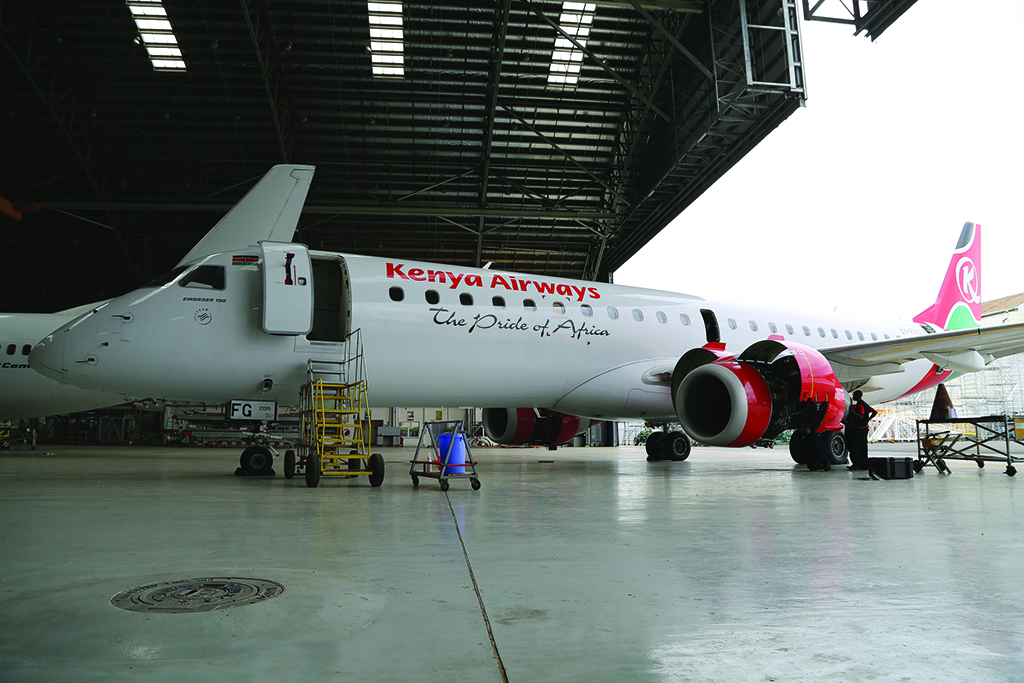
Martyn Haines, technical director of Kenya Airways, agrees with the forecast of more than 1,000 new aircraft in the next 20 years, but points out that figure covers only new deliveries from the production line. “There is an influx of older aircraft in age and model that is expected over the same period with the possibility of the number topping up another 1,000 aircraft,” he says. “This would cover a range of different aircraft types, manufacturers, and configurations. This assumption is evidenced by the expansion of new low-cost carriers not necessarily positioned to lease/finance new aircraft, and existing operators needing to be more innovative in the use of a mix of new and older fleets.”
Limited MRO Opportunities
The economic, political and geographical issues affecting airline traffic in Africa and the fact that local traffic growth has remained mostly flat has limited opportunities for MRO growth. Aviation Week’s MRO Forecast estimates that airlines in Africa spent about $2.5 billion on MRO in 2016. But this spending is expected to grow, as the influx of new aircraft will require new and more sophisticated technical skills and capabilities. ICF International predicts that by 2025, African MRO spending will increase by about $2 billion.
The dominant MRO players on the continent can be divided into African and non-African operators. Local MRO providers include SAAT, Ethiopian Airlines Maintenance and Engineering, Kenya Airways Technical, Air Algerie Technics and Tunisair Technics.
Non-African operators include Air France Industries KLM Engineering & Maintenance (AFI KLM E&M), Direct Maintenance and Sabena Technics. There are also joint ventures such as Air France Industries’ and Royal Air Maroc’s Aerotechnic Industries.
SAAT is one of Africa’s leading MRO providers and has an aggressive focus on building its third-party business. According to Zwane, the market segments for MRO in Africa mirror the global trends of outsourcing and insourcing. Engine and component services are still dominated by the original equipment manufacturers (OEM), which are fast becoming an ever-bigger threat to MROs as they enter the aftermarket with total care and support packages. “Airframe and line maintenance segments have a distribution, especially in Africa, of many legacy airline MROs performing in-house services, but there is a slow transition toward more third-party MRO providers,” he adds.
Zwane believes that in order for Africa to both grow commercial aviation and stimulate economic growth, it is imperative for all countries to embrace the Yamoussoukro Decision. Consequently, SAAT has taken up a leadership role in promoting this campaign in Africa.
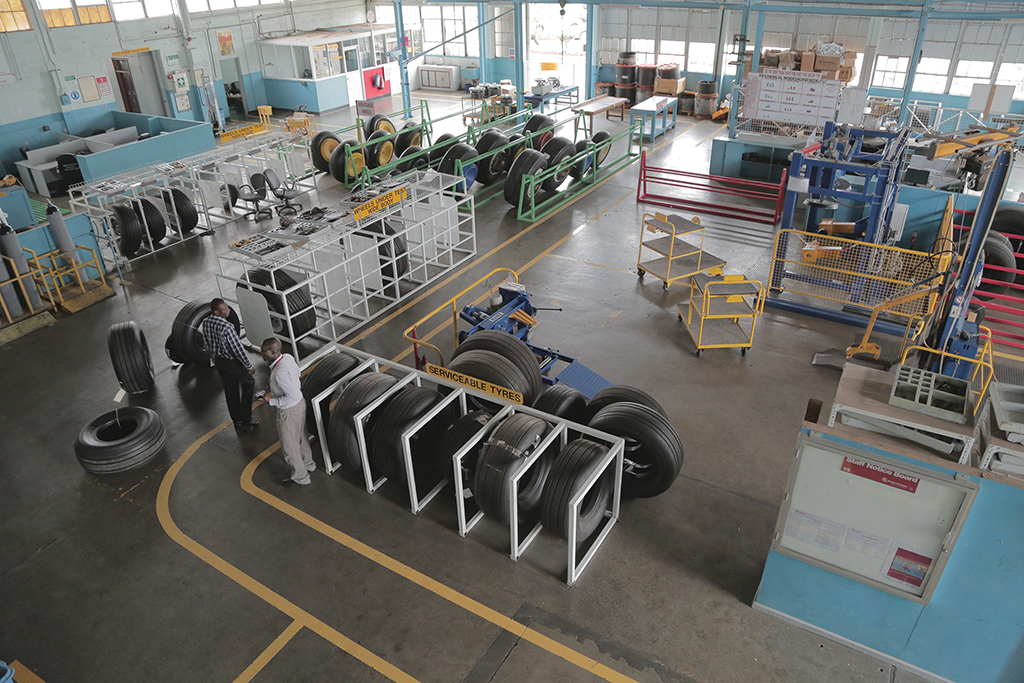
Kenya Airways Technical is one of the continent’s emerging MRO players. It already offers third-party services with line and heavy maintenance and provides coverage for a range of component repairs and overhaul. It also offers entry into service support, training and technical services.
International Investment
MRO giants such as AFI KLM E&M have long seen Africa’s potential and have made substantial investments in the region. “Africa is an important market for us. We have contracts in West Africa with Air Cote d’Ivoire and Congo Airways and also in East Africa with carriers such as Ethiopian Airlines and Kenya Airways,” says Jean-Michel Picard, AFI KLM E&M vice president of sales for Africa and the Middle East. We also have contracts in Reunion, Mauritius and Madagascar, which for us is part of Africa. Local MRO capacities are still limited, but growing, with our support in many cases.” In November 2016, AFI KLM E&M and Ethiopian Airlines signed a long-term component services contract covering a fleet of 28 Boeing 737NGs.
Picard says AFI KLM E&M is always seeking to develop and expand its MRO support network, but it is often a challenge to set up an MRO shop in Africa. Political unrest can affect the aftermarket supply chain—in extreme cases, spare parts become unavailable. Africa’s remoteness from major OEMs and parts suppliers also can be an issue due to the huge distances involved in the logistics supply process. Existing and future MRO operators will have to find solutions for such problems.
Whenever a new airline starts operations, AFI KLM E&M proposes a variety of support structures. “Sometimes we acquire equity stakes in an airline, as Air France-KLM has done with Kenya Airways, Air Cote d’Ivoire and others,” says Picard.
Training Is Essential
Kenya Airways Technical Director Martyn Haines argues that the biggest aftermarket requirement is training for MROs, ranging from basic to sophisticated specialized services. These needs vary by operator, size and exposure. One example is software management, which may require bespoke support in development of user interfaces, loading and control. As African operators/MROs are affected by the loss of highly skilled and trained staff being aggressively recruited to move to the Middle East, an emphasis on training will continue to be critical. SAAT’s Zwane agrees that skilled labor is a growing requirement. He says local MROs will require significant training on new-technology aircraft, particularly in avionics and composites.
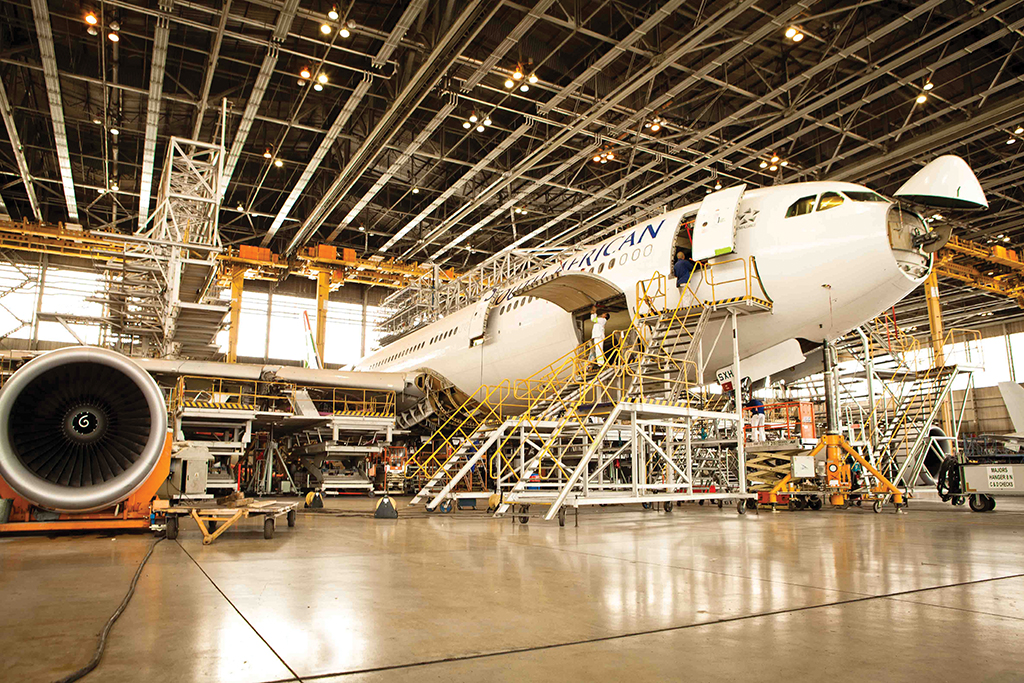
One way to gain this expertise is to partner with established providers. In December 2015, SAAT put out a request for proposal that included both component support and a joint venture for MRO support. In June 2016, AAR won that competitive bid and began work at O.R. Tambo Airport in Johannesburg in October. This is a plus for the region, as the deal will boost South Africa’s MRO industry and increase access to Africa-based MRO services.
According to Cheryle Jackson, president of AAR Africa, legacy airlines in developed countries have long partnered with third parties to reduce the cost and increase the efficiency of aftermarket services. “Carriers in emerging markets like Africa are now realizing the same benefits of outsourcing, which can be particularly helpful during a period of start-up or expansion in terms of helping to keep both capital and operating costs lower.”
She cites partnership benefits such as supply chain and technical expertise. AAR provides component parts and component repair to Ethiopian Airlines, Kenya Airways and Fastjet in Tanzania.
Jackson points out that partnerships are also an important way for the African aviation industry to grow and strengthen its local supplier base and workforce. This is crucial—with the aviation market in Africa expected to grow exponentially by 2030, many aviation services are still outsourced beyond the continent.
Zwane believes partnerships are the solution to many of Africa’s MRO problems. “Joint ventures and collaborations will certainly provide this continent with the much-needed economies of scale,” he says. “Partnering through aviation can lead to economic growth for this entire continent. Now is the time for African aviation to take the lead in propelling this region as an emerging economy with a fortified future.”
Even with such partnerships, challenges remain in providing and expanding MRO services in Africa. Jackson agrees that a sufficiently trained and ready-to-go workforce is a common problem. She mentions having enough operational aircraft to support an MRO hub as another hurdle.
From the perspective of an African airline operator and MRO, Kenya Airways’ Haines sees the following obstacles to MRO growth:
· Lack of infrastructure to support aviation businesses.
· Lack of critical mass that would promote investment.
· Lack of agreements between governments to support and enable multi-country business investments.
· Middle Eastern carriers’ aggressive recruiting of African-educated engineers and technicians.
Future Growth Plans
The three major African MRO hubs are in Johannesburg, Nairobi and Addis Ababa, Ethiopia. In August 2016, there was much fanfare when ASKY Airlines based in Lome, Togo, and shareholder Ethiopian Airlines announced plans to establish an aircraft MRO and training center in West Africa. This is a significant development, as West Africa does not have any local stations capable of performing heavy maintenance. Tewolde Gebremariam, CEO of Ethiopian Airlines, explained that ASKY was in discussions with the Togolese government and that if approved, the MRO facility would service Boeing and Bombardier aircraft. If this MRO center is established, it will certainly be a boon to the continent’s MRO capabilities.
Africa has the potential to be one of the fastest-growing aviation regions and to become an important MRO hub over the next 20 years. There are significant growth opportunities for both airlines and MRO providers, but whether the continent will be able to overcome its myriad challenges remains to be seen. But as one of Africa’s greatest leaders, Nelson Mandela, said: “It always seems impossible until it’s done.”


